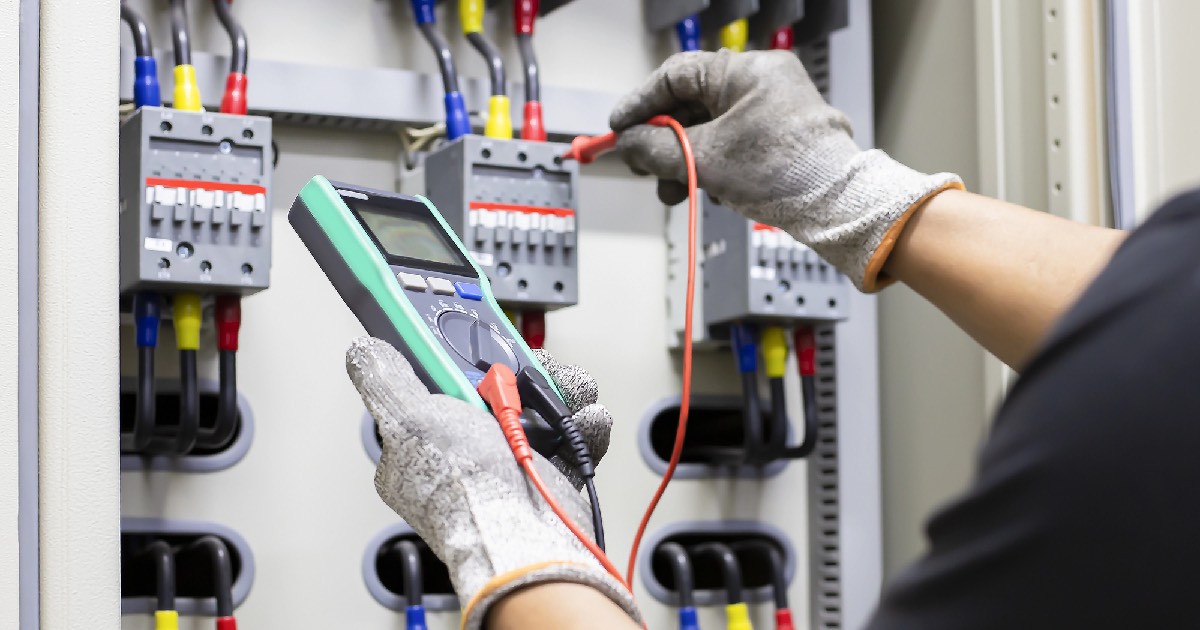What to Expect During a Commercial Electrical Inspection

Keeping your business safe and running smoothly requires more than just day-to-day maintenance. It also means making sure your electrical systems are in top condition. For commercial properties, electricity powers everything from lighting and security to computers, HVAC, and specialized equipment. Any failure or hidden hazard in your electrical system can lead to costly downtime, safety risks, or even code violations.
That’s why annual commercial electrical inspections are so important. These inspections provide peace of mind that your facility is not only meeting regulatory standards but also operating efficiently and safely. Whether you’re moving into a new building, upgrading your current space, or scheduling a routine check-up, understanding what inspectors look for can help you prepare and avoid unexpected issues.
Let’s break down the purpose of a commercial electrical inspection, the key areas inspectors evaluate, and how you can get your business ready for a smooth, hassle-free process.
Why Electrical Inspections Matter
Electrical systems are the backbone of any commercial property. They power everything from lighting and HVAC systems to computers, machinery, and security systems. A small issue like overloaded circuits, faulty wiring, or outdated equipment can put your employees, customers, and property at risk. Regular inspections help:
- Ensure compliance with building and fire codes
- Prevent electrical hazards, such as shocks and fires
- Improve energy efficiency
- Reduce downtime and unexpected repairs
- Protect your investment in equipment and technology
What Inspectors Look For
During a commercial electrical inspection, licensed contractors or inspectors take a close look at the overall safety, efficiency, and compliance of your electrical system. Here’s a breakdown of the areas they typically evaluate in detail:
Wiring and Connections
Faulty or outdated wiring is one of the most common causes of electrical hazards. Inspectors check for frayed wires, loose connections, or outdated materials that could lead to overheating or fire risks. They’ll also make sure wiring is properly insulated, secured, and labeled for clarity.
For older buildings, inspectors may recommend upgrades to modern wiring standards, especially if your business relies on high-powered equipment that wasn’t common when the building was first constructed.
Circuit Breakers and Panels
Your electrical panel acts as the central hub for your entire system, distributing power throughout the building. Inspectors confirm that breakers are properly sized to handle your building’s load, that no circuits are overloaded, and that the panel itself is up to code.
They’ll also look for clear labeling, safe spacing, and signs of wear such as corrosion or overheating. An outdated or undersized panel can cause frequent tripping or, worse, put your business at risk of an outage during peak operations.
Grounding and Bonding
Grounding ensures that any stray electrical current safely flows into the earth instead of posing a shock hazard. Bonding connects different metal parts of your system to prevent dangerous voltage differences. Inspectors verify that your system is both grounded and bonded correctly, as improper grounding can damage equipment and create serious safety risks for staff and customers.
Outlets and Switches
Everyday components like outlets and switches are examined for wear, damage, or improper installation. In high-risk areas such as kitchens, bathrooms, or outdoor spaces, inspectors check for GFCI outlets, which shut off power instantly if water contact or a ground fault occurs. In offices or meeting spaces, they may recommend AFCI outlets to prevent dangerous arc faults. These details are easy to overlook but play a big role in keeping your building safe.
Lighting and Emergency Systems
Lighting goes beyond simple fixtures. Inspectors ensure your overhead lighting, task lighting, and exterior lighting are functioning properly and safely wired. They also pay special attention to emergency systems, such as exit signs, backup lights, and emergency pathways, that must meet fire code requirements. These systems are critical during outages or emergencies, so inspectors verify that they’re reliable and compliant.
Equipment and Appliance Hookups
If your business relies on specialized machinery, commercial kitchen appliances, or heavy-duty equipment, inspectors check that each has the proper wiring, outlets, and circuit capacity. They’ll also confirm that equipment is connected safely and doesn’t strain your system. For businesses with sensitive technology, like servers or medical equipment, they may look for surge protection and power backup solutions as well.
Preparing for Your Inspection
A little preparation goes a long way in making the inspection process smooth and efficient. Clear access to electrical panels, wiring closets, and equipment and check for obvious issues like broken outlets, flickering lights, or exposed wires. You can also update your records so inspectors can easily review permits, previous inspection reports, or maintenance logs. Also, try to schedule the inspection during off-hours to minimize disruption to your business operations.
Once the inspection is complete, you’ll receive a report outlining any issues that need attention. In many cases, electrical contractors can make repairs or upgrades quickly to bring your system up to code. Addressing problems promptly ensures safety, avoids fines, and prevents costly downtime.
Schedule Your Electrical Inspection Today
A commercial electrical inspection isn’t just a formality; it’s a safeguard for your employees, customers, and property. By understanding what to expect, you can prepare effectively and work with your electrical contractor to address any concerns before they become serious problems.
At MV Power Solutions, we specialize in helping businesses stay safe, efficient, and compliant. Whether you need a routine inspection, repairs, or a full system upgrade, our team is here to keep your operation powered with confidence. Give us a call today to schedule an appointment at 720-287-2305.
